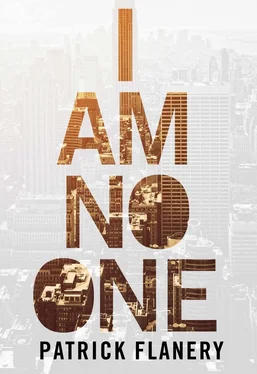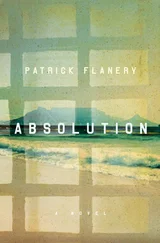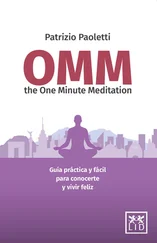What else might yet come? Would I wake on Monday or later that week to find a box outside my door, kindly brought up from the lobby by Ernesto or one of the other doormen, and inside discover a complete record of all my electronic financial transactions over the past decade, a body of evidence that would suggest, if nothing else, a life lived abroad and, more recently, sympathy for this woman who was my student and is now the mother of my son?
I returned to the box, for I had not yet exhausted its contents, and in the final compartment found pictures from this past year, dating from just after Selim’s birth. A sob tore out of my throat as I gazed at them, pictures of my son in his stroller pushed along the uneven Oxford streets, carried in his mother’s arms, meeting with his maternal grandmother in the Grand Café on High Street, being displayed to cooing friends at a picnic under a beech tree in the University Parks, a beautiful child, a boy who looked without question like his father and mother drawn together and distilled into a new and vital image. It was terrible to look upon and I spread all the photos of mother and child out on my long dining room table, arranged so I could see how my boy had been growing in my absence these last few months, he was healthy and happy and no doubt meeting all the milestones as he should, and Fadia, whose face provoked more tenderness in me than I might have expected, appeared happy but also heavy with preoccupation or concern, I didn’t know quite what to call it, a look of thoughtfulness and worry, perhaps only because she was finishing her thesis, or so I suspected, perhaps because of the disappearance of her brother, perhaps because all was not well with her father, perhaps because she knew that one day I would return, refusing to allow my son to carry on living independently of me. And then, near the end of the files, was a single photo showing Fadia on St. Giles, just outside the Taylorian, speaking with Stephen Jahn, and Selim in a pram between them. There was something in Fadia’s and Stephen’s postures that chilled me, as if the inclining of her head in his direction suggested an alliance and the glint in his eye a plot or a purpose. I looked at the photo again, knowing I could not reliably read the situation on the basis of a single image. They might have met by accident, and what appears to be alliance in one moment might in the next, the many unrecorded moments that followed, look like coercion or rejection.
As I was studying these images, feeling the tormenting pleasure at seeing evidence of the ongoing life of my child, and confusion about how Fadia and Stephen might still be in touch with each other, I was conscious of the weight of a gaze upon me, of someone looking, a still point in a field of movement, and when I glanced up and out of my window onto the dark glossy stretch of Houston Street, I saw Michael Ramsey, undisguised, staring up at me, a finger pointing at his chest, his head nodding as he watched me looking at him, as my gaze met his and together, in that shared moment of recognition, I knew that whatever else might be happening, whatever the strange complications my own actions had created in my life and might go on proliferating, Michael Ramsey was somehow trying to help me.
And yet, he turned away, and as he did I began to doubt it had actually been him. I watched as the man who might have been Michael spun on his heel and walked west along Houston towards MacDougal, perhaps to the café where we had met a week earlier. Thinking I would phone him, I searched the white pages online, but there were a hundred Michael Ramseys in New York alone. Calling each of them, and on a Sunday evening moreover, seemed preposterous. Then it occurred to me that I could simply ask Peter how to contact Michael, and yet, I knew that even if I reached him he would deny everything over the phone because if he was — or is still — working for the NSA or some other intelligence-gathering body, he would know his own line was being monitored (that must, I imagine, be one of the requirements for such a job, the relinquishing of one’s own privacy for the sake of our national security).
Whatever he was doing, trying to help me or warn me, he had done so in a way, I was certain, that would not be discovered, or could never be traced back to him, or only with considerable effort. It was as though he wanted me to make myself into a victim who was willing to come forward, revealing how I was being watched by my own government for activities that were not, in point of fact, illegal. (Perhaps, I think in this moment, that is precisely what I am doing here, in these pages, revealing my own victimhood.) Michael Ramsey would not help me without first proving to himself that I had broken no laws, which meant that my payments to Fadia must be going to her alone, and that such payments could only, by the most doctrinaire mind, be thought to break any of the laws of America or Britain.
Given the conversations with Meredith and Peter and Susan, I had been considering stopping the payments, though I feared if I did so it would look as though I believed something was amiss in the first place. More importantly, I was afraid that suspending the transfers would jeopardize any relationship I might yet have with my son. It remains my legal responsibility to support my child. To follow one law is to break another. Catch-22. But I have, I remain confident, broken no laws. I do not think I am a fool. Desire undid me, yes, to that I make a full confession, but in trying to correct my failings I have done only what I believed to be legal, to pay for the support of the mother of my child, to pay for the support of my child as his mother has asked me to do. If the account into which I have been sending money to Fadia is in fact not her account but one belonging to her brother, a terrorist, or an account to which he has access, am I nothing more sinister than a dupe?
That Monday morning I tried to phone Fadia on the last number I had for her, but when the call connected a singsong British accent told me it was no longer in service. I sent her an email, and then another, as I had in the past, but she did not reply. Later that morning a messenger delivered a parcel, but this time it was nothing more menacing than a new phone, a gift from Meredith, ‘To help us keep in touch,’ her note said. I turned the thing on, following the directions to set it up, and dialed her number.
‘I received your little gift,’ I said into the phone. ‘I’m calling you from it.’
‘I know, Dad, your new number is already in my contacts. Do you like it?’
‘It’s a phone, darling, what’s to like?’
‘They’re objects of desire.’
‘Perhaps your desire, but not mine.’ There was a pause on the line. I was disappointing Meredith, who only wanted to help, just as she did when she upgraded my airline tickets or arranged car services to fetch and deliver me, acts designed to insulate me from the realities and messiness of life. ‘Sorry, I don’t mean to sound ungrateful. It’s a fine-looking thing. Very sleek. And I suppose it’ll allow me to do all kinds of things I couldn’t do before, like finding a decent restaurant in Midtown.’
Meredith laughed although she did not sound amused. It was not a laugh I recognized.
‘Darling?’
I could hear her breathing, a quick exhalation, almost as if she were smoking a cigarette.
‘It’s — I just thought it would help us stay in touch.’
Once a landline was enough, and I wonder if, in the past, we didn’t trust each other more, knowing there would be stretches of every day when we would not be able to contact our spouses or children or parents, trusting they were simply getting on with their lives and being faithful to us and whatever they later reported having done was true, or at least plausible. For each of us, the freedom of not being reached, of wandering untracked through the city, browsing in bookstores and libraries, living life in a way that the mind did not feel hunted or followed or simply distracted by the silliness of unwanted messages and the ability to check stock prices every thirty seconds or receive alerts of breaking news, must have meant that as recently as a decade ago we were thinking more and reacting less. Is it any wonder we have entered a more reactionary age? Our technology is teaching us to react rather than reflect, so that even the leftwing movements of the present seem no longer to be based in ideas as much as in the constantly shifting desire to respond to offense or inequality or injustice, and yet the discourse surrounding whatever the movement or outrage du jour might be seems too often founded on a wafer of historical and ideological ignorance. These were the kinds of thoughts I was once able to share with Susan — in fact such conversations were the foundation of our relationship when we were in our twenties, married overnight, with a daughter nine months later, and no knowledge of each other except the quality of our respective minds. How I missed the possibility of such talk, and in the spirit of spontaneity and the desire to see, perhaps one last time, whether there might still be the possibility of a more serious rapprochement, I got in a cab and went uptown.
Читать дальше












